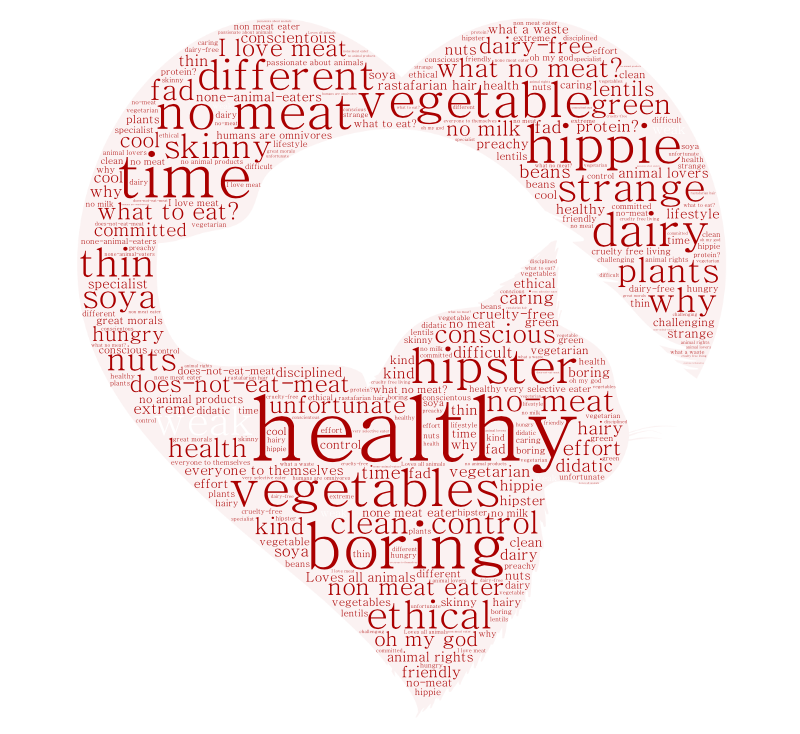In a new series of Q&A style interviews, Research Officer Dr. Lorna Brocksopp will be shining the spotlight on individuals involved in researching all things vegan. A warm welcome, therefore, to our very first Spotlight On interviewee, Dean Adamson from our new Researcher Network.

Hello, Dean! You’ve recently joined our new Researcher Network and we’re going to hear more about your research in a moment. But first, tell us a little about yourself and what brought you to living a vegan lifestyle?
I believe that my compassion was influenced greatly by my first job. I joined the Army at 16 and at 17 I completed my first tour of Kosovo. I had an opportunity to learn, from my experience, how lucky I was growing up in the UK. This compassion has stayed with me for life and has recently transferred into my compassion for animals and the planet. I have always had an interest for animals, and was, for the majority of my life, an animal lover that ate animals. That was until 2015, when I decided to go vegan. I travelled a lot with my previous job and would always be upset when I saw a lorry on the road moving animals from life to slaughter. It did and still does upset me. That year, with the help from the Veganaury campaign I went straight from meat eater to vegan and, other than a few slip ups in the early stages, I have never looked back. The transition has not been difficult for me because my girlfriend already was vegan, her parents are vegan, and between us we run 3 vegan businesses selling amazing vegan food. I also love cooking and regularly prepare dinner (that's tea up North) for all 4 of us. I am now the proud co-founder of Mummy Meagz business that aims to influence the growth of veganism by making indulgent chocolate bars that taste better than their non-vegan competitors.
Happy 3rd Vegan Anniversary! Can you tell us about your research and how it came about?
“Human violence towards and exploitation of non-human animals is endemic in ‘developed’ industrial societies, including the UK. For example, over 850 million non-human land-dwelling animals are annually slaughtered for human consumption.” - Cole and Morgan (2011: 134)
It’s stats like the above and my passion for the movement of veganism that inspired me to focus my Masters research on the development of veganism in the UK. Coming from a working class background I grew up on a council estate in Hull. It’s rare to find another vegan amongst my peers and friends of the past. What’s more, there was and still is a lot of judgment towards my lifestyle choice and me. As such, I was interested to investigate the public perception of veganism in the UK. My research is limited by the lack time, money and access to a large, broad range of participants. It is a very interesting study though, and one that I would recommend needs further research and scrutiny. The objective of the research is to make a general contribution to the knowledge and theoretical understanding of veganism, in business, and academia, rather than solve a specific problem.
I’m sure it is a very interesting study! Are you able to let us have a peek at the results?
Of course! The participants were 104 non-vegan individuals. 52% were male and 48% female. (Age groups: 18-25: 4%; 26-35: 40%; 36-45: 27% and 45+:29%) I asked all participants the following question:
‘What are the three words that come into your head when you see/hear the term vegan?’
Analysing the results using data software, I was able to produce this with the following diagram with the frequent terms larger than others:

The most frequent term used was ‘healthy’. This suggests that the non-vegan perception of veganism is that it is a healthy diet. It could also suggest that people have an inherent bias, insofar as they categorise vegan in terms of a diet and not a lifestyle. Other common terms used were boring, hippie/hipster, strange, weak, vegetables, no meat, ethical, different, and skinny.
Healthy was the most popular term used across all age ranges apart from 18 to 25. The term most used there was ‘green’. However, this age range was a very small percentage of the sample. Female participants tended to use descriptive terms, such as skinny, thin, hairy. Whilst male participants used terms describing personality traits, such as weak, cool, disciplined. Another interesting find was people’s inability to define a vegan. I was often asked what is a vegan?
I hope you pointed them in the direction of The Vegan Society’s website for the answer! So is there anything particular you find interesting about your findings?
What I find most interesting about my research is what I also find most frustrating about veganism as a whole and it is twofold: Firstly, it is the inherent bias towards animal consumption as the main focus. There are so many other areas that are under-explored, and that may require more media attention, such as animal exploitation for science, the fur trade, the breeding process behind the meat and dairy industry etc... Secondly, it is that vegans are healthy and that to choose to be vegan makes you healthy. I can still eat processed vegan food, sweets, chocolate, crisps, chips, takeaways. I believe that this is a barrier to the growth of veganism and that the strategy to encourage people to become vegan for health reasons is risky and somewhat off putting.
Our in-house dietitian, Heather, might have some guidance on that one (see below). What do you think are the wider implications of your research?
Although I’m aware you can’t generalise to the public as a whole, I think my research results suggest that public perception of veganism is generally positive. The participants assumed that veganism is a healthier choice, that vegans are compassionate, care about animals and that we get our 5 a day! There seems to still be the idea that vegans are hippies and there was a negative vibe, insofar as the terms 'boring' 'strange' 'extreme' and 'weak' were used. This could imply that we still have some way to go before veganism truly becomes mainstream and accepted in the wider community.
Do you have any plans or a ‘wishlist’ for further research in this area?
If I had unlimited resources and the time I would love to conduct this research again focusing only on the more deprived areas in the UK. I'd be really keen to explore the class barrier that I believe exists in the world of veganism and explore the drivers and barriers to becoming a vegan which I believe, from my own experience, exist within certain lower-income groups. I would love to explore the question of how veganism is perceived within different class systems.
Thanks very much, Dean, for taking the time to talk to us about your research!
Thanks to you too! And a big hello to fellow members of the new Researcher Network. I'm really excited to be a part of this network and am looking forward to connecting with new like-minded and passionate friends, listening to other people’s stories and finding out about their research.
A note from our in-house dietitian, Heather:
“It’s really important to highlight that going vegan doesn’t guarantee that your diet will be healthy. Today, there are many salty, sugary and fatty foods available that do not contain ingredients of animal origin. The key message is that a well-planned vegan diet contains lots of health-promoting plant foods, and enables us to obtain all the nutrients we need, whilst helping animals and the environment.”
Are you conducting vegan-related research and would like to feature in a forthcoming edition of Spotlight On…? If so, get in touch with Lorna by emailing [email protected] and tell us more!
Read more about the valuable contribution of our Researcher Network in the Research section of our website.
The views expressed by our bloggers are not necessarily the views of The Vegan Society.

